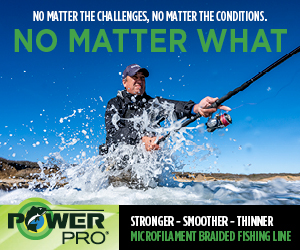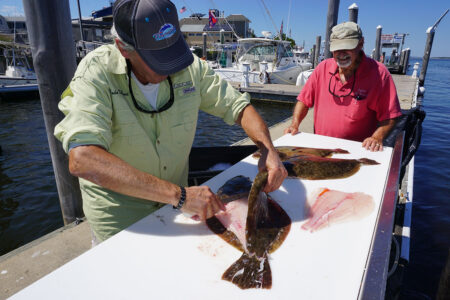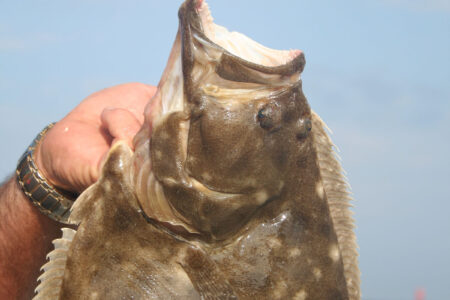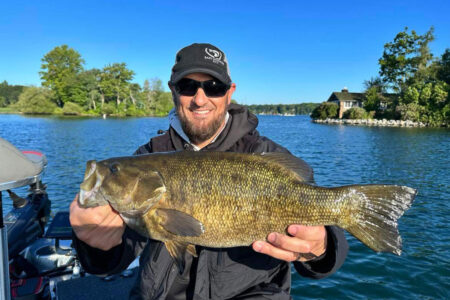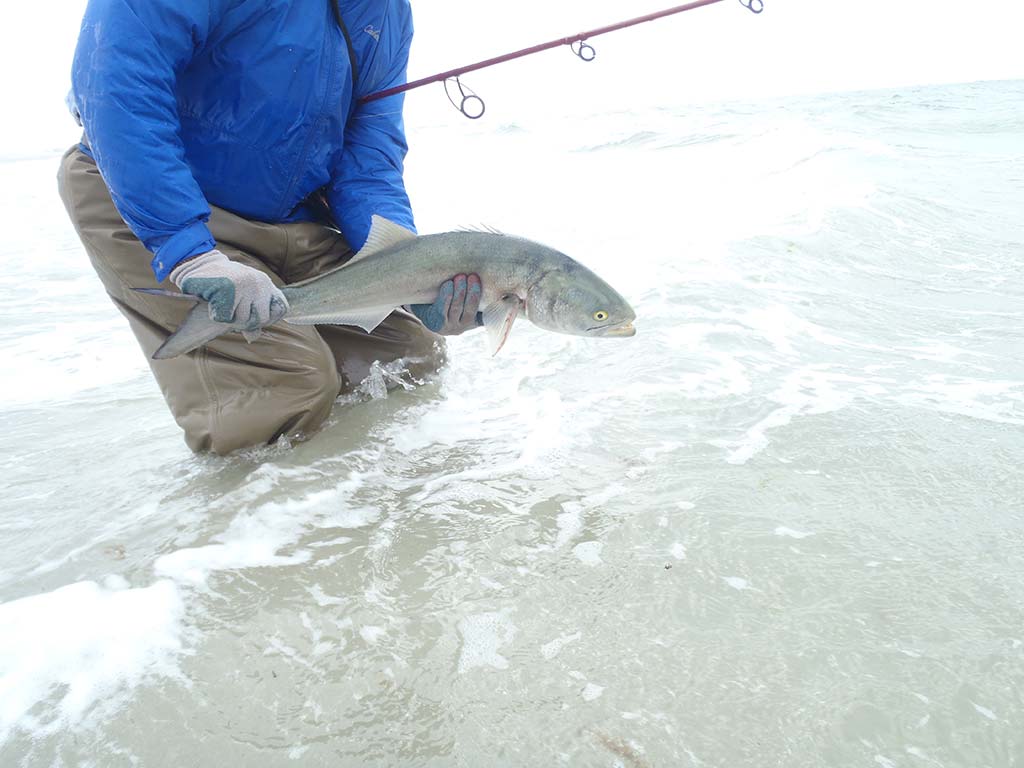
There are many ways to enjoy surf fishing, and they all have a place in the sport.
This philosophy of “home cooking” can be applied to both surf and boat fishing. Indeed, I’ve followed my philosophy in boat and surf fishing, but I learned its importance in the suds first, so I thought it best to describe the development of my home cooking in the surf.
Choices On Choices
There are many ways to enjoy surf fishing, and they all have a place in the sport. Not everyone can be a dedicated nut-job like me and some of my friends. Some only fish in the fall but do it with intensity. Others enjoy sitting in a beach chair with a clam, worm, or chunk working its magic somewhere in the trough. Some only fish at night and others only in the day. Some prefer light tackle and some heavy gear. Whatever way you enjoy the sport is up to you, of course, but there is a truism about all ways to surf fish. That is, without hard work, consistent success is unlikely. So, if your time on “blue-bird” days is spent in a beach chair and you only catch a fish occasionally but have a good time, then expectations and results match up just right. However, if you expect to catch a thousand stripers and big blues doing that, then your expectations need adjustment. Therefore, the first step for any would-be surf angler must be to choose what kind of surf rat they want to become: I decided long ago that I wanted to be hardcore!
Done With School
When I finished graduate school, I had several goals I set for myself. I thought that without many hours spent in the classroom, lab, and studying, I would have more hours for personal pursuits, including fishing. This was the early 1970s, and one goal I’d held onto for decades was to get back into surf fishing and perfecting my skills. However, when I first returned to the suds, my prior knowledge was outdated, and my skillset was rusty. So, like many others with a similar desire, I joined a surf club. In my case, The High Hill Striper Club. Being a member of that club brought me up-to-date fast, but when it came to actually plying the surf, I was a bit lost. Like many others, I followed stories and found myself wandering from one beach to another searching for yesterday’s results, but I was often a day late and a dollar short.
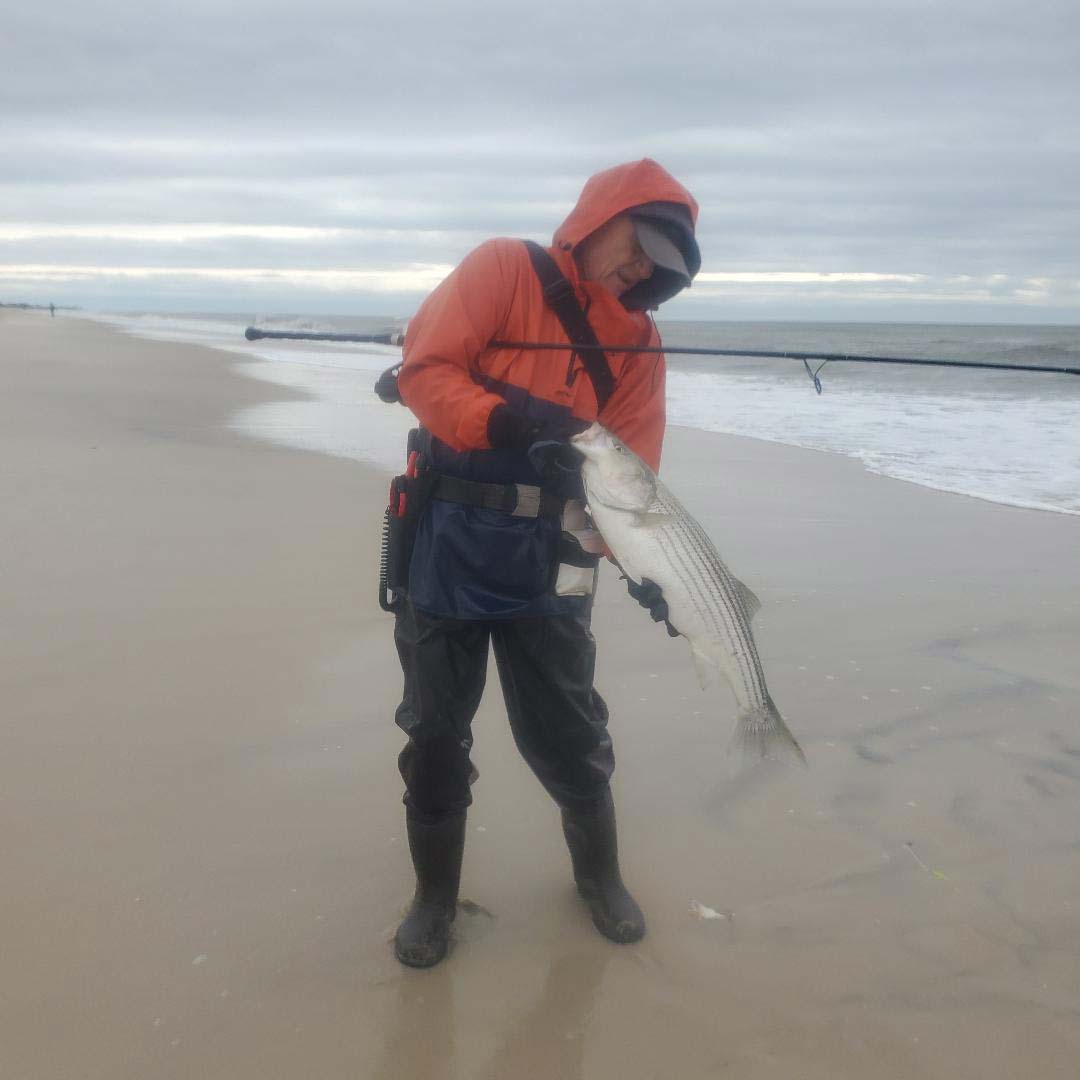
Time To Think
It was time to use the noggin that God and my parents gave me and start thinking this through. I quickly realized that I was wasting a lot of precious time driving, to say nothing of the gas I was using. The ocean and its estuaries cover a vast area, so it was apparent fish weren’t everywhere all the time. However, if bait and structure are present and weather is conducive, fish could be found in time windows, some long and some short. How could I find these windows? I knew it would take discipline and hard work to find them, but they would be a consistent part of a recipe for solid home cooking if I did find a few.
Any spot needs to have at least most of the essential ingredients that bait and gamefish prefer. That’s my starting point. Where in my backyard can I find structure, a little tidal current, and a place where baitfish like to gather and grow? Most of the places I looked at were featureless—barren, flat, and without even a boulder that might attract some bait or a few gamefish. One by one, I crossed them off my list. I was left with a few potential spots close to home. Here comes the tricky part for any angler because personal discipline is needed to reach the next level—discipline to be patient and solve puzzles.
Like A Jigsaw
A hatred or fondness for solving puzzles plays a role in my home cooking methodology. As we have seen so far, finding a few likely spots close to home is only the beginning, and most of the puzzle remains unsolved. Some anglers have told me, “I don’t want to exert effort thinking and solving puzzles. When I’m done with work, I only want to relax.” Understandable, but if you like and enjoy your leisure activity, then maybe it isn’t work. Completing a jigsaw puzzle might be working for some, so they don’t do them, while others find them relaxing. The process of finding windows in your backyard is similar to filling in a jigsaw puzzle and can be both exciting and fun. I get excited about solving puzzles, so I pursue them with vigor—probably a residue of years in scientific research trying to solve the mysteries of how and why things work. So, I’m comfortable with the idea of vigorously learning about a potential spot to find those windows of opportunity.
A Methodical Approach
At this point, let me provide an example of my methodology. It started when I finished graduate school. Since then, I’ve moved four times and each time in the same direction, ending up almost 80 miles away from where I started. I lived in each spot for a least ten years, but because I’ve always owned a philosophy that states better to fish than to drive, I worked to find good fishing at each location. However, the process isn’t an overnight project or a weekend sortie; instead, it takes time. Anyone without patience shouldn’t even start the project. Yet, I had confidence that all my new home locations held fish, and with enough time, I could figure out a few productive windows. However, what I didn’t do was just as important as what I did do.
For example, I didn’t chase ghosts. Many anglers chase reports, try a spot only once, then dismiss its potential, either because they failed, didn’t adapt to environmental conditions such as winds, moon phase, and other weather factors, or because of travel time. Reports have a lot of value. Many good surf rats use them to get a head start by gathering background information against a backdrop of overall fishing possibilities, fish patterns, and bait distribution to help decide where and when to fish. Good anglers rarely use reports as a sole source of information, instead as a piece of the puzzle. So, I came to realize that if I focused on home cooking in my backyard, I would travel less, build my own reliable “textbook” about my spot, and have more time to fish, explore, and learn. Yet, just as making one trip to follow a report is wasted effort. It takes a commitment of time and discipline to find a few windows.
Find Your Terrain
I always begin with a physical survey of my backyard areas—both by car and on foot. I’m looking for suitable features conducive to holding bait, attracting fish, and providing solid feeding opportunities. It’s usually pretty easy to see the features that make a spot a good potential producer—especially at low tide. I develop a short list of locations but then take all the other pieces of the fishing puzzle and lay them out in front of my brain. These include bait, moon phase, tides, seasons, underwater and beach structure, and wind and weather.
How will each of these fit into my home cooking recipe? At this point, I fish the spot often and slowly absorb information that defines the puzzle. I note all the pieces in my log and how conditions varied and related to my success or failure. Some combinations were disastrous, some showed a glimmer of hope, while a few seemed to produce consistently. I threw out the disasters, made a mental note to explore the hints, and set out to concentrate on those combinations of factors produced consistently.
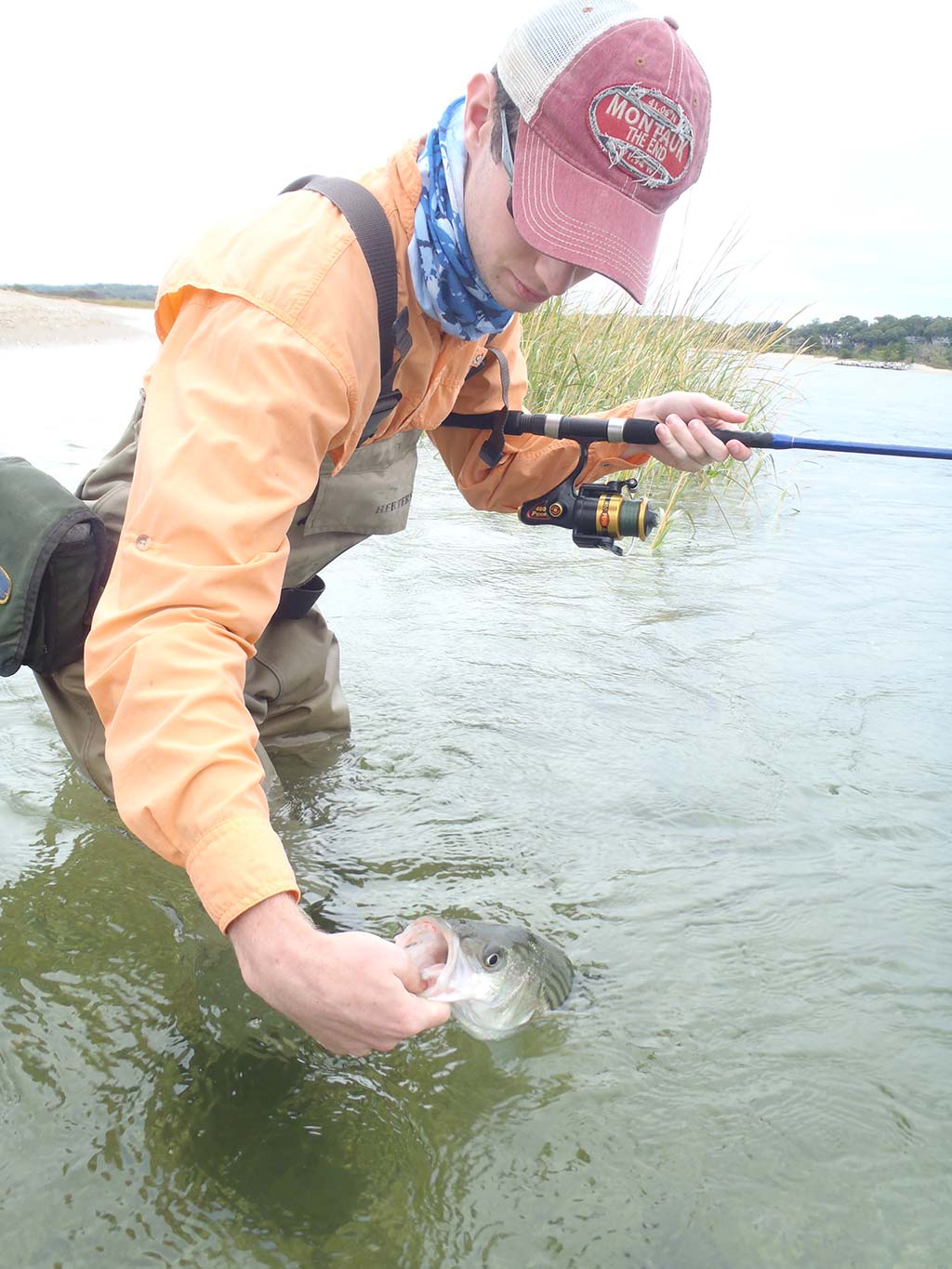
Confidence
Without a doubt, confidence is essential for consistent success. Desire and intuition also breed confidence. So, when my sixth sense and a set of conditions coincide, I can significantly improve my success if I whittle down the recipe to smaller and more delicate ingredients, such as lure type and size, precise and repetitive presentations, and specific wind direction and intensity. When I get to this point, I’m more like a dealer shuffling cards than a fisherman. I shuffle again and again and then lay these out on the puzzle. By this point, most of the puzzle is filled, and the remaining holes are known to me. However, I still need to take those small and irregularly shaped pieces and find out where they fit to complete the puzzle.
Take note that a home cooking puzzle is different from a jigsaw puzzle because the fishing puzzle is never completely finished. As I fish my spots repeatedly, I discover new things and adjust the recipe carefully because nature does not stand pat. Nature is constantly making changes—some big and some small. That means the angler must also be ready to recognize these changes and adjust to the recipe to sustain consistent success. I like when details change over time because it prevents sameness from leading to boredom. Fishing is different every day, and that makes it both challenging and exciting.
As I mentioned above, solving one of these angling puzzles instills confidence. In fact, enough confidence that, if you should move to a different location and find yourself faced with new backyard fishing grounds, you can quickly solve the intricacies of your new puzzle. As I said, I’ve moved four times. However, each time I’ve moved, I have repeated the ritual of solving the puzzle that led to windows of consistent success, and each time I have succeeded. This supports my theory that good fishing is everywhere but not all the time or spread out across distances of the beach. There’s an old adage in fishing that the harder it is to get to a spot or figure out how a spot works, the better the fishing will be.
Choose Your Path
If this puzzle-solving approach isn’t for you, you can still enjoy surf fishing any way you choose to do it. However, if you are hardcore or would like to be hardcore, then invest the time, approach the search for windows of opportunity the way you’d solve a puzzle, do it with energy and enthusiasm, put in your time and compile the details. If you do, I hope you find it to be as much fun as it’s been for me over the years. One final thought. Isn’t it odd that the more hardcore an angler becomes, how that angler also generally becomes more conservation-minded? Hmmm! I wonder what that’s all about?
